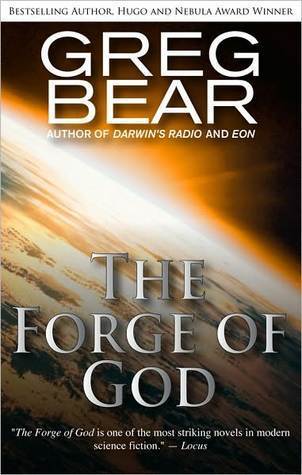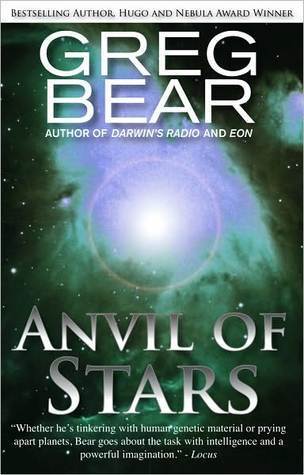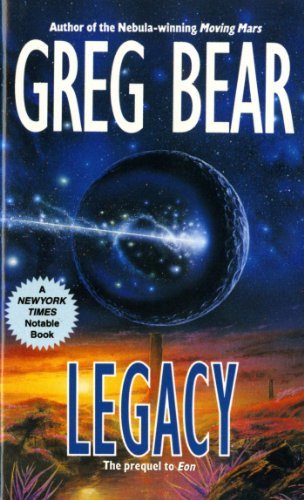
The Forge of God
Book Description
A planet-shattering threat looms as humanity's greatest minds are plunged into a desperate battle for survival. As mysterious cosmic phenomena challenge the very fabric of existence, scientists and civilians alike are drawn into a web of intrigue and fear. Loyalties fracture, and relationships are tested against a backdrop of impending doom. With time slipping away, will humanity rise together to face the unknown, or will they succumb to despair? The fate of Earth hangs in the balance, and as the darkness closes in, what sacrifices will be made to forge a path to salvation?
Quick Book Summary
"The Forge of God" by Greg Bear is a gripping science fiction novel that depicts Earth's confrontation with an unstoppable cosmic catastrophe. When inexplicable events—a mysterious visitor in the desert, seismic activity, and vanishing lakes—signal the arrival of alien forces, Earth's community of scientists, politicians, and average citizens struggle to decipher their purpose. As the scale of the threat emerges, humanity's fractured alliances and internal conflicts threaten their ability to respond. Amid panic and government secrecy, small groups strive to uncover the truth and seek allies, both human and extraterrestrial. Ultimately, Bear weaves a moving story of loss, resilience, and sacrifice, forcing characters and readers to grapple with the implications of apocalypse—and the hope for survival against unimaginable odds.
Summary of Key Ideas
Table of Contents
Inevitability of Cosmic Catastrophe
The novel opens with a series of strange phenomena across the globe. An enigmatic dying alien arrives in the Nevada desert, indicating the presence of advanced extraterrestrial life and warning of Earth's doom. Simultaneously, scientists notice alarming signs: mysterious objects buried deep in the planet, massive earthquakes, and lakes evaporating overnight. Government agencies and scientists grapple with the realization that Earth faces annihilation, but the nature and origin of the threat remain elusive. The world is forced to reckon with evidence that Earth has been targeted for destruction by an incomprehensibly powerful alien intelligence.
Human Response to Existential Threat
Amid the mounting evidence of impending disaster, the world's scientific community bands together to analyze the clues. Tensions rise between nations as knowledge about the alien threat is compartmentalized and politicized. Ordinary people, thrust into chaos, struggle to comprehend the gravity of the situation. Some form tight-knit groups to face what comes, while others descend into fear and denial. Bear explores how human institutions—from families to governments—react under existential threat, and how the need for unity competes with suspicion and self-interest when survival is at stake.
Sacrifice and Survival
As humanity’s options dwindle, the moral and emotional cost of survival becomes clear. Some humans are offered a chance at rescue by benevolent aliens, but only a handful can be saved. Decisions about who will go and who will remain are agonizing and fraught with guilt. The characters experience deep personal losses, struggling between duty and the desperate urge to save loved ones. Bear examines the concepts of heroism, sacrifice, and grief as people choose between hope and despair in the face of their world’s end.
Interplay of Science and Politics
The novel also delves into the roles of technology, intelligence, and the limitations of human understanding when confronted by alien motives. The destructiveness of the alien invaders is ultimately revealed as a form of cosmic housekeeping—a remorseless and automatic process designed to contain a perceived threat. Meanwhile, the rescuing aliens represent a glimmer of cosmic compassion and the potential for renewal. These contrasting motives force humans and readers alike to consider their place in a vast, indifferent universe where morality is subject to the whims of intelligence far beyond our own.
Alien Motives and Morality
"The Forge of God" ends with Earth’s devastation and the survival of a small remnant of humanity, chosen by their extraterrestrial allies to endure and possibly rebuild elsewhere. Bear leaves readers contemplating the fragility of civilization, the thin line between hope and oblivion, and the possibility of redemption through perseverance and unity. The legacy of the destroyed Earth lingers as a testament to both the tragic costs of cosmic indifference and the persistent will to survive and remember.
Download This Summary
Get a free PDF of this summary instantly — no email required.





